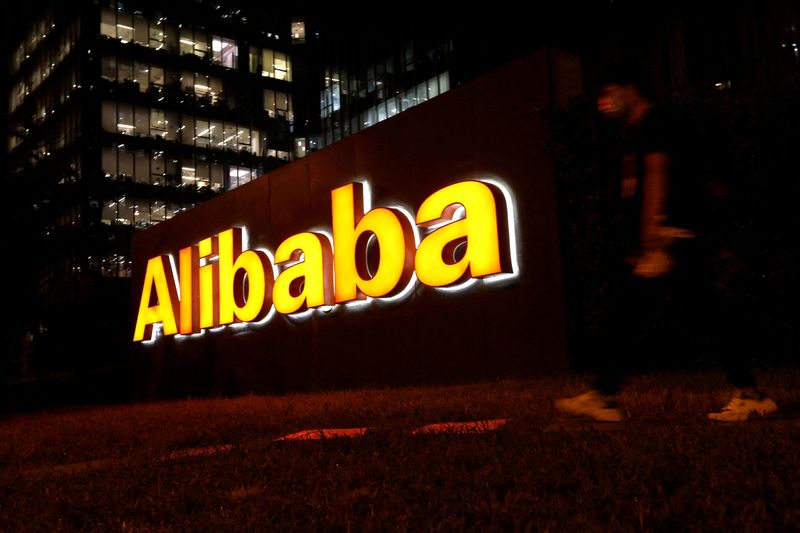By Casey Corridor
SHANGHAI (Reuters) -Shares of China’s greatest e-commerce firms – Alibaba (NYSE:), JD (NASDAQ:).com and PDD Holdings – had been dumped earlier this week on worries about stress on their margins after low-price vendor PDD pledged to speculate extra for providing reductions.
The three corporations promote the whole lot from magnificence merchandise, home items, electronics and meals to lots of of tens of millions of individuals every month and are seen as barometers of Chinese language shopper sentiment.
However since 2021, as COVID-19 and a lacklustre financial restoration, mixed with the extended property market hunch, hammered shopper confidence in China, the three have seen their fortunes diverge.
The largest winner over that interval when it comes to income progress and market capitalisation positive factors has been PDD, which operates low cost centered platforms Pinduoduo (NASDAQ:) for the home China market and Temu internationally.
Belt-tightening shoppers have flocked to Pinduoduo’s low-cost electronics and inexpensive clothes fundamentals, as they substituted costlier gadgets for unbranded variations.
However this week, PDD’s shock miss of analyst estimates for quarterly income (even after posting an 86% progress in income and beating revenue estimates) was sufficient to see some folks query whether or not even low-price consumption in China was beginning to endure.
A $55 billion wipeout of PDD’s market cap adopted when executives instructed a post-earnings name that income progress and income can be more durable to return by amid elevated competitors at residence and the necessity to “resolutely make investments” to be able to entice greater worth retailers.
“The home demand image will most likely not change a lot within the coming months,” mentioned M Science analyst Vinci Zhang. “Regardless of China’s authorities saying that they are dedicated to boosting shopper spending…they’re failing to handle the core drawback, which is weak family earnings.”
Alibaba and JD.com too have struggled to seek out important income progress in current quarters, with a income base a lot greater than PDD’s. However they’ve, to some extent, stemmed the market share bleed in favour of Pinduoduo by specializing in value-for-money choices.
Though PDD’s income is lower than half of Alibaba’s and only one third of JD.com’s, PDD’s lean construction of relying closely on third-party distributors has allowed it to get pleasure from higher margins.
PDD’s working margin is the very best at 34% among the many three, adopted by Alibaba’s 15% and JD.com’s 3%, because it has a relatively small group of simply 17,400 workers. In contrast, the Alibaba Group has a workforce of round 200,000 and JD.com’s workforce stood at 517,000 together with 355,000 supply personnel.

In response to Jacob Cooke, CEO of e-commerce consultancy WPIC Advertising + Applied sciences, Pinduoduo’s power continues to be centered on unbranded items. However low value alone may not be sufficient to engender buyer loyalty in an atmosphere wherein everyone seems to be now providing all-time low costs.
“Whereas there’s been a variety of noise round aggressive discounting from PDD’s opponents, we’re now seeing JD.com, Douyin, and Alibaba lean in additional on their very own distinctive aggressive benefits – specifically that these platforms are stronger in higher-value branded items, customer support, and content-driven commerce,” he mentioned.



